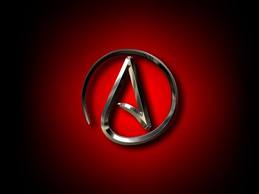Do you have to be a conservative to be a real-life Ayn Rand hero?
Hardly!
Rand used the word conservative as an insult. But then again she did the same thing with the word liberal.
When it comes to politics she was maddeningly hard to pin down - and very resistent to being labelled.
That said, she is probably associated more with so-called conservative ideas than so-called liberal ones. And with Atlas Shrugged selling better than ever, the political right has been quick to claim that it's because of politics. The right's story is that the Great Recession that rocked the globe in 2008 and 2009 was caused entirely by government meddling in the economy, and that Ayn Rand's masterwork amounts to a predication of that, made more than a half century ago.
That is a misreading of Rand, and the political left should be the first to say so. In fact Rand has always offered as much to liberals as she has to conservatives.
For starters, it's much to simple to say that Atlas Shrugged is a parable of the destructive effects of government intervention, a black-and-white world in which businesspeople are heroes and public servants are villians. In fact, the primary villian in Atlas Shrugged is a businessman, railroad executive James Taggart. There are villainous politicians, to be sure, but for the most part they are portrayed as passive bumblers. The government's most destructive acts are carried out at the behest of Taggart and his cronies, not for ideologicial motives.
Yes many of the heroes of Atlas Shrugged are businessmen.
But that is only to say that the key dynamic animating the story's action
is the conflict between good businessmen and bad businessmen.
Even the heroic businessmen in Ayn Rand are portrayed as flawed and conflicted individuals. They are not examples of 'an ideal man,' the projection for which was for Rand "the motive and the purpose of my writing'. That honor belongs to 'John Galt' , a humble inventor. (Liberals take note : In Atlas Shrugged, Galt invests a motor that required no energy - which would today be called 'green energy'.)
The same distinction shows up with a vengence in The Fountainhead , Rand's first major novel. The ideal man is Howard Roarke, an art-for-art's sake architect. Ultrarich newspaper tycoon Gail Wynand is portrayed in heroic terms , prefiguring some of the industrial giants who will later populate Atlas Shrugged . But Wynand is a tragic hero who makes the error of pursuing wealth for the power over people - as in fact many highly achieved businesspeople do. In the closing scene of the book Wynand commits suicide declaring his entire life to have been a failure.
It's ironic to see the political right overlooking these realities in order to embrace Rand. Until now, conservatives have despised her.
So if my enemy's enemey is my friend, then Rand is a friend to liberals.
Rand was a militant atheist and that has always been an irreconcilable difference with the conservative movement, given it's coalition with the Christian church. Rand never even tried to be conciliatory on the subject. When she first met William F. Buckley Jr., the founding father of modern conservatism and a devout Catholic she reportedly proclaimed in her thick Russian accent, " you are too intelligent to believe in God."
from I am John Galt : Donald Luskin and Andrew Greta





